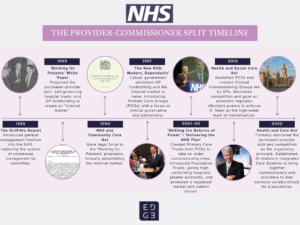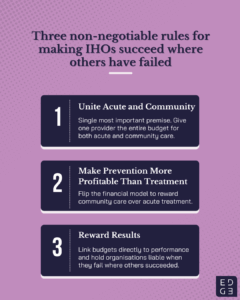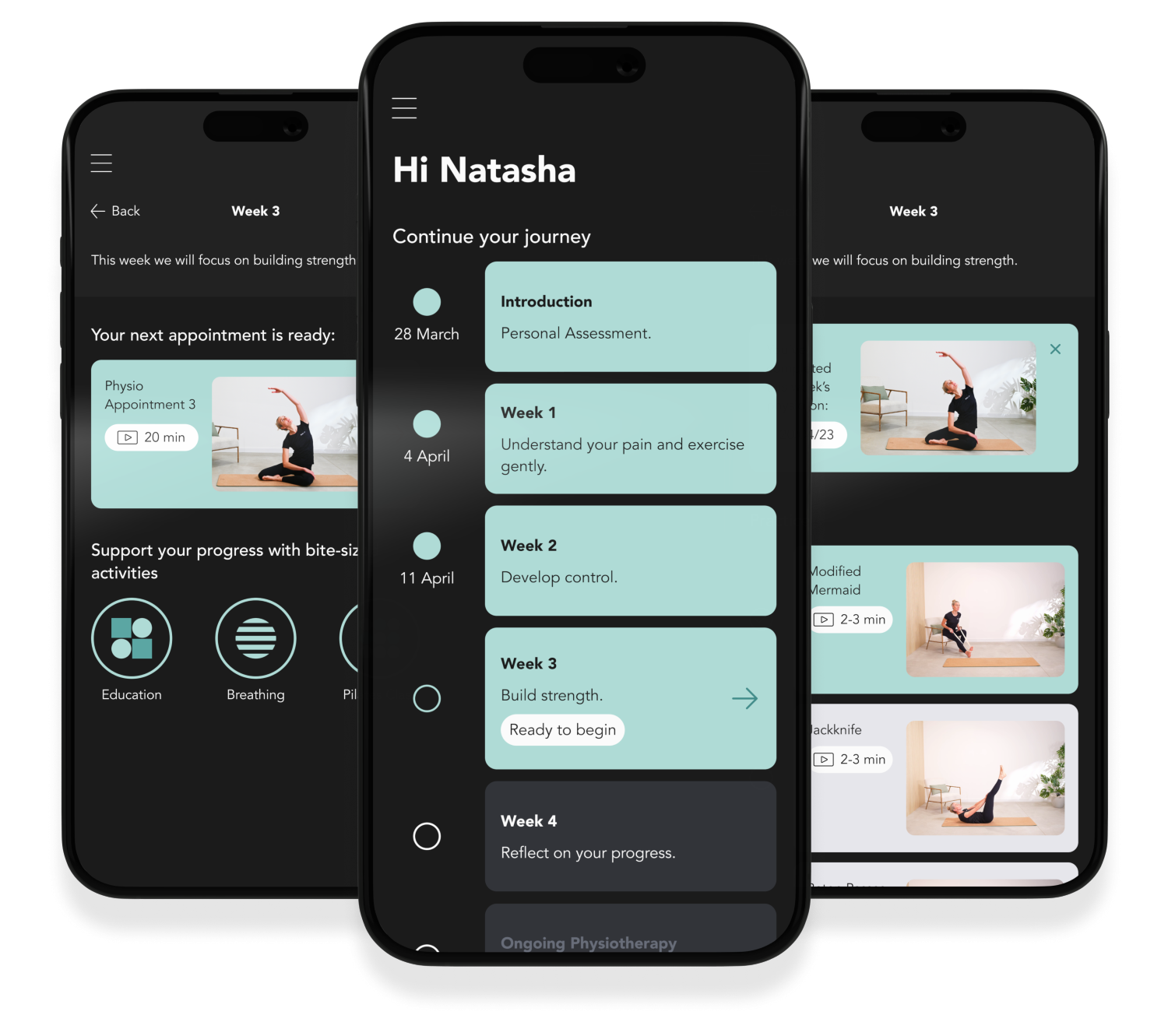The 10-Year Plan: Achieving its vision for technology through meaningful patient involvement

With the launch of the Government’s 10-Year Health Plan, patient involvement has suddenly become a major focus of healthcare reform. Barbara Harpham, Chair of the Medical Technology Group, looks at what the NHS needs to do to ensure patients are involved in decision-making in a meaningful way.
The new 10-Year Health Plan places a large emphasis on improving care through patient choice and consultation. Integrated Care Boards (ICBs) are already obliged to involve patients and communities in decisions about their healthcare. But the reality is this function in the health service is not currently prepared for providing the meaningful insight that can support the rapid transformation of the health service being envisaged.
The Medical Technology Group (MTG) is a coalition of patient groups and life sciences companies campaigning for better access to technologies and innovation on the NHS. Meaningfully embedding the insights of patients into decisions and evaluations of new technology and innovation can be particularly powerful in delivering effective services and improving outcomes at both a patient and system level. Patients often provide insight that no dataset or performance metric can reveal – recognising where something has been poorly implemented, or how it could be adapted to improve. They are often the first to spot gaps between policy intention and patient reality.
The need for meaningful patient involvement has only grown with the reforms set out by the 10-Year Health Plan. The operating model envisages foundation trusts becoming more devolved, performance-led Integrated Health Organisations (IHOs), incentivised to focus on outcomes for the local communities they serve.
Meaningfully understanding patient experience across the pathway and post-discharge will also be of importance to new value-based procurement models, now weighted according to long-term social value alongside immediate financial cost.
But what does meaningful patient involvement look like? Our research suggests that its potential is far from being fully realised. Many members of our patient groups have expressed concern that current processes are inadequate, particularly in relation to new technology and innovation, where consultation can often appear inconsistent, tokenistic, and undervalued.
Patient involvement – meaningful or tokenistic?
Prior to the 10-Year Plan, research by the MTG into the structures, policies and processes of the country’s 42 ICBs found significant barriers to meaningful patient involvement. 40 per cent of the boards had no formal patient involvement in meetings and subcommittees in place.
Last year, the MTG hosted its patient involvement forum, bringing together our patient group members to reflect on their experience of how well the system is seeking to understand these insights and integrating them into decision making processes.
The research identified six areas where NHS bodies – including ICBs – must improve if the patient voice is to have a meaningful impact on the technology transformation agenda:
1. Comprehensive training for patients
Patients asked to join committees or technology working groups often receive inadequate training. Some reported that induction sessions were more about “ticking the box” of engagement than equipping them to contribute.
Without understanding policy context, decision-making structures, and the technical aspects of new innovations, patients cannot engage as equal partners. This is particularly critical in discussions around digital tools and AI, where jargon and complexity can exclude all but the most experienced advocates.
What’s needed: Co-designed training programmes developed jointly by NHS organisations and patient groups, tailored to the specific technologies or service changes being discussed.
2. Support mechanisms and resources
True diversity in patient voice cannot be achieved without addressing the practical barriers to participation. Patients with disabilities, those facing language barriers, and those without digital access require tailored support.
Financial considerations matter too. Attending committees often means unpaid time and out-of-pocket expenses, which can exclude those from lower-income backgrounds.
What’s needed: Funded participation schemes through local innovation budgets, accessible meeting formats, and easy-to-understand briefing materials for all technological initiatives.
3. Better promotion of opportunities
Too often, roles for patient representatives are advertised narrowly – via social media or closed networks – limiting the diversity of applicants. Over-reliance on “expert patients” means the same voices are heard repeatedly, reducing representation of the average patient experience.
Even when adverts are seen, the use of technical language can deter those without prior advocacy experience.
What’s needed: Clear, jargon-free adverts promoted through community networks, GP surgeries, and local media, with explicit role expectations.
4. Diversity in experience
Patients with deep knowledge of their own condition are valuable contributors, but if they dominate engagement structures, decisions may overlook broader perspectives. MTG warns that this risks turning involvement into a box-ticking exercise, with limited insight into the needs of underrepresented groups.
What’s needed: Recruitment strategies that actively seek patients from varied cultural, socio-economic, and geographic backgrounds, ensuring innovations work for everyone.
5. Closing the Feedback Loop
Patients consistently report that they rarely hear what happens to their input. Without structured feedback, it’s impossible to know whether patient perspectives shaped the final outcome – or whether they were heard at all.
What’s needed: Standardised feedback processes, such as NICE’s practice of providing clear, written explanations showing where patient insight influenced decisions.
6. Real Decision-making power
Being in the room is not the same as having influence. In too many cases, patients are invited to observe or comment, but not to co-create or vote on final decisions.
In the context of the 10-Year Plan’s technology roll-out, this risks embedding solutions that do not fit patient needs, increasing the likelihood of low adoption or misuse.
What’s needed: formal roles for patients in governance structures, with clear rights and responsibilities in decision-making.
NHS reform without meaningful patient involvement risks failure
There is a real danger in assuming that technology, by itself, will deliver better outcomes. History shows that poorly implemented systems – no matter how advanced – can create new inefficiencies, frustrate users, and even harm patient trust. Embedding the patient voice from the start of this transformation means these risks are spotted earlier, mitigated faster, and are less likely to derail the benefits that innovations promise.
Technology must be matched with processes and resources that put patients at the centre of design and decision-making. This requires cultural change across the NHS, alongside practical reforms:
- Set national standards for patient involvement in technology rollouts
- Fund patient participation as part of innovation budgets
- Mandate diversity and transparency in patient recruitment for ICB committees
- Evaluate patient experience as a core metric of technology success
At present, too much change is driven by one-way processes led solely by policymakers, clinicians, and technologists. This must become an ongoing dialogue, in which patients are embedded as equal partners in design, decision-making, and evaluation.
Without this, we risk creating a “technology-first” NHS that fails to meet patients’ real-world needs, and misses the chance to harness the patient voice as a catalyst for innovation that works in practice as well as in principle.











